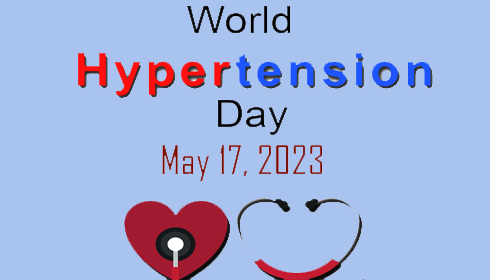
All women must take their blood pressure seriously: Prof Angela Maas
On the occasion of World Hypertension Day, celebrated on May 17 each year, this year the cardiologists from the European Society of Cardiology (ESC) advise that women to all women should know their blood pressure to prevent heart disease and stroke, as high blood pressure is the most lethal risk factor for women worldwide.
“Cardiovascular disease is the leading cause of death in women,” said ESC spokesperson Professor Angela Maas, emeritus director of the Women’s Cardiac Health Programme, Radboud University Medical Centre, Nijmegen, the Netherlands.
Pointing out that the risk for cardiovascular disease increases at a lower blood pressure level in women compared to men, she added, “My message to all women is to take your blood pressure seriously, know your values and convince your doctor that if it is too high, then you need treatment. Do not underestimate the long-term effects of high blood pressure.”
According to a 2021 study published in the journal Science Direct between 1990 and 2019, the cases of hypertension almost doubled among women.
The study further found that while in 1990, 331 million women aged between 30-79 years were hypertensive, this figure rose to 626 million in 2019.
Pointing out that one of the most important consequences of hypertension in women is a type of heart failure in which the heart muscle is stiff, Prof Maas stated, “There are few treatments for that condition, so if you want to avoid symptoms such as shortness of breath, fatigue and fluid retention when you are over 70, you have to start treating high blood pressure in middle age. If you wait 20 years, it is too late.”
Available data indicates that around one in three women have hypertension across the world, and raised blood pressure has been named the most important risk factor for death in women globally.
“Despite its importance, we know that hypertension is more often underestimated and not, or insufficiently, treated in women compared to men,” Prof Maas stated.
“One of the reasons may be that below the age of 50, hypertension is more prevalent in men. This reverses in the years after menopause so that after the age of 65, hypertension is more common in women than men.”
According to experts, there is a misconception that high blood pressure does not cause symptoms in women that are often attributed to menopause, anxiety or stress.
Some common symptoms of high blood pressure reported by young and middle-aged women include palpitations, chest pain, soreness between the shoulder blades, headaches, difficulty concentrating, shortness of breath, weariness, fluid retention, poor sleep and hot flashes.
“When we treat hypertension, many symptoms erroneously attributed to menopause disappear,” said Professor Maas.
“Night sweats can be caused by high blood pressure, for example, so women with menopausal symptoms should have their blood pressure checked and treated if needed,” she added.
A 2022 study published in the European Heart Journal found that hypertension in midlife is more harmful in women than in similarly aged men and is a stronger risk factor for myocardial infarction, cognitive decline and dementia.
The study further found that women have a higher risk of stroke at lower blood pressure levels than men, although high blood pressure increases the chance of heart failure threefold in women versus double in males.
“Hypertension is currently defined as a systolic blood pressure of at least 140 mmHg and or diastolic blood pressure of 90 mmHg or higher,” Professor Maas said.
She also stated that conversations are already taking place to determine whether normal blood pressure numbers in women should be lower than in men.
“More research is needed before there is any change in treatment guidelines but I expect that within five years, the threshold for normal blood pressure will be lower in women than men,” she added.